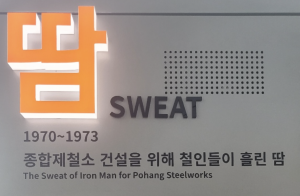Pohang: POSCO Museum
Photo essay of wall text of POSCO Museum of Pohang

Photo essay of wall text of POSCO Museum of Pohang

XXX

There were not any portions of this film that were not convincing.
"Older models of welfare rely on precise definitions situating citizens and their attributes on a cross-mesh of known categories upon which claims rights are based. Here one observes how ambiguities related to categorizing suffering created a political field in which a state, forms of citizenship, and informal economies were remade."
"She saw the illness of this group as a "struggle for power" and material resources related to the disaster."
"The sufferers and their administrators were also supported by the nonsuffering citizens, who paid a 12 percent tax on their salaries to support compensations"
Users can access the site from a computer or there is an app available for smart phones.
The policy is the IAEA: Convention on Early Notification of a Nuclear Accident. Written in 1986, it aimed to create an international system for reporting a nuclear accident, transferring vital information from the source to those who would need it to facilitate effective emergency response.
Byron J. Good is a medical anthropologist currently on the faculty of Harvard University, where he holds the positions of Professor of Medical Anthropology at Harvard Medical School and Professor of Cultural Anthropology in the Department of Anthropology. Good's writings have primarily focused on the cultural meaning of mental illnesses, patient narratives of illness, and development of mental health systems.
The article was developed with the use of data analysis of accepted individuals to show the change/development in immigration policy and the increase of immigrants due to medical reasons.
Based on the available sources, I was unable to determine if this article was discussed or cited elsewhere.